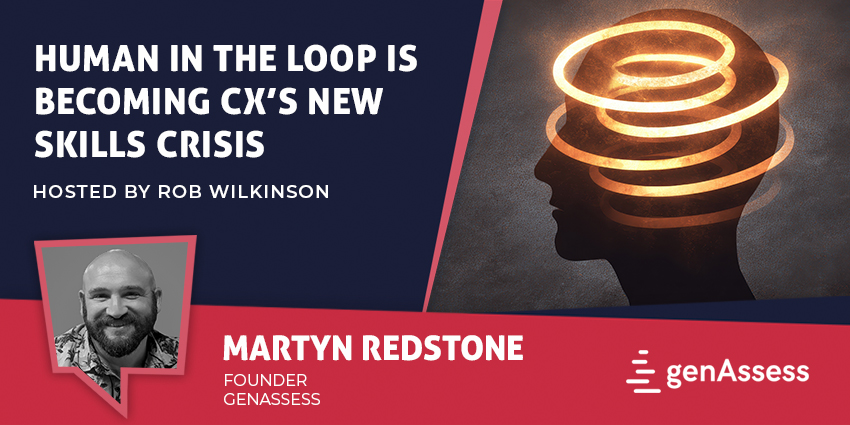This holiday season, AI agents are stepping into the shopping cart. This year marks the first time consumers will turn to autonomous AI assistants to plan, compare, and complete their purchases.
Retailers are moving quickly to integrate these intelligent agents into their e-commerce platforms, aiming to deliver faster recommendations, more personalized deals, and seamless checkout experiences just in time for the busiest shopping season of the year.
Shoppers are also warming up to the idea of AI-powered assistance. Early adopters plan to consult AI to search for gift ideas, specifically citing ChatGPT as a tool, according to survey data from Bread Financial.
Those users are likely to continue their holiday shopping journeys online, through marketplaces like Amazon, social media platforms, or retailer apps.
“For the 2025 holiday season, AI-assisted search is positioned to be the first step in a shopping journey that begins and ends online,” Bread Financial notes, adding that data-savvy retailers optimizing for tools like ChatGPT could gain a competitive edge.
AI agents can shift the shopping journey from reactive to proactive, anticipating customers’ needs by learning from their behavior and predicting intent.
Unlike traditional chatbots, which answer questions in a transactional way, AI agents can reason, make decisions, and act on a shopper’s behalf. They bring together data from large language models (LLMs), real-time data, user preferences, and contextual insights, learning and improving with each customer interaction.
“We’re at the very start of the Agentic Web — where AI assistants don’t just find information on the web for us, they navigate it with us — and it will dramatically alter how we do things every day,” including shopping, said Dave Anderson, VP of Product Marketing at Contentsquare, adding that AI is already transforming online shopping behaviors:
“Intelligent AI agents are starting to compare prices, automatically apply coupons, and even complete purchases on their own. Customers are learning how to ‘set it and forget it,’ and letting agents do all the work for them.”
Retailers Turn to AI Agents to Power Smarter Shopping
Retailers are taking note, with Walmart emerging as a high-profile example.
The U.S. retail giant is leaning fully into “agentic commerce” this holiday season, rolling out five new AI-powered tools to help in-store and online shoppers find gifts, organize celebrations, or spruce up their homes to welcome guests.
The In-Store Savings feature in Walmart’s app lets customers find the best Black Friday, Rollback, and clearance deals as they navigate the aisles, with options to filter items, compare prices, and locate products in-store. Saved wish lists can be sorted by aisle for faster shopping.
AI-generated audio summaries for more than 1,000 premium beauty products make gift-buying easier on the go, while Sparky, Walmart’s GenAI-powered assistant, can now curate party supplies and recipe ingredients in real time.
For a more immersive experience, the retailer is also inviting customers into its augmented reality 3D showrooms using its Retina platform, where users can explore holiday-themed spaces and add products to their carts directly from interactive scenes.
Walmart hopes these features will encourage shoppers to engage with its app for their holiday purchases, as “when they use the app while they shop in stores, they spend 25 percent more on average than on trips when they don’t use the app,” Tracy Poulliot, SVP of Shopping Experiences at Walmart U.S., said in the announcement.
Behind the scenes, Walmart is deploying AI to enhance efficiency and freshness. Its Agentic AI for Freshness helps teams predict demand, reduce waste, and keep shelves stocked, while a multi-agent delivery system optimizes driver routes and delivery timing.
Other upgrades include a GenAI customer support assistant, dynamic real-time delivery windows, and digital twins that pre-empt equipment failures.
Walmart has embraced various forms of AI-first shopping, recently partnering with OpenAI to let customers complete purchases directly within ChatGPT using Instant Checkout.
Doug McMillon, Walmart’s President and CEO, framed the shift:
“For many years now, e-commerce shopping experiences have consisted of a search bar and a long list of item responses. That is about to change. There is a native AI experience coming that is multimedia, personalized, and contextual.”
Other retailers are also gearing up to deliver agentic e-commerce for the holiday season.
At the recent Salesforce Dreamforce event, homewares retailer Williams Sonoma announced its use of Agentforce 360 and Data 360 to bring AI agents into its online shopping experiences.
Alongside a customer service agent that delivers personalized responses, the retailer is developing a “sous chef” agent on Agentforce called Olive to help customers plan menus and discover products on its website ahead of the holiday season.
Olive will draw on data such as past purchases to infer intent and create customized Thanksgiving plans, complete with menus, shopping lists, and recommendations for Williams Sonoma cookware, ingredients, and table décor.
Similarly, Denmark-based jewelry retailer Pandora is gearing up for the holiday season with the debut of its shopper-facing AI agent Gemma, built on Salesforce’s Agentforce Commerce platform.
Unveiled during Dreamforce, Gemma was created to bring personalized service to the company’s digital channels. The jeweler typically increases its staff during peak holiday demand, but capacity can be stretched even with the additional support.
Traditional chatbots handled basic “Where’s my order?” questions, but Gemma aims to replicate the brand’s in-store service online, drawing on order history, product details, and research insights to guide gift selection.
A companion agent, Clara, handles post-purchase requests and FAQs, freeing up human staff to focus on higher-value customer interactions.
AI Traffic to Retail Sites Surges
Data underscores the growing impact of AI on retail. In its online shopping forecast for the holiday season covering the November 1 – December 31 period, Adobe predicts a 520 percent year-on-year rise in AI traffic to U.S. retail sites, following the first material surge of 1,300 percent seen last year.
Its survey of 5,000 consumers found that one-third have used AI for online shopping, and of those around 30 percent have used it for gift inspiration, while 36 percent were looking for deals, and 40 percent sought product recommendations.
Retailers of all kinds are increasing their use of AI beyond basic chatbots, data from Talkdesk’s third annual AI Holiday Shopping Report shows.
Among retailers that have already adopted AI, 85 percent are now using it for predictive analytics, up 24 percentage points from last year, and 83 percent have deployed virtual agents into their shopping experience, also up 24 points.
They are slightly more cautious about AI agents in customer service, reflected by an increase of 20 points to 79 percent.
Nearly two-thirds are leveraging AI to deliver personalized pricing and promotions to customers. Confidence in the technology is rising just as quickly, as 80 percent of retailers believe AI will help boost holiday sales and sharpen their competitive edge, and 79 percent expect it to strengthen customer loyalty, according to the survey.
Talkdesk’s data shows that retailers already using AI are widening their competitive gap with laggards.
“While retailers can’t stop that shift, they can study and leverage it,” ContentSquare’s Anderson said.
“It’s crucial to step into this next era of digital commerce by getting back to important basics: building analytics that capture how customers are using AI, like agent-powered traffic, search patterns, and conversion metrics.”
Still, transparency remains a sticking point, as Talkdesk’s survey shows 84 percent of consumers want to know when AI is involved, and most expect stronger oversight. While many are open to sharing preferences or basic personal details in exchange for more tailored experiences, few are comfortable disclosing sensitive data.
To earn that trust, retailers will need to balance personalization with privacy, offering meaningful value in exchange for data, such as discounts or loyalty points, and clearer communication about when AI is at work.
“Revenue and customer loyalty are going to be driven by how well brands prepare for a future where human and AI shoppers share the same carts,” Anderson said. “It’s not just about optimizing for Google anymore — it’s about optimizing every system that defines the future of digital experiences.”
As AI agents become part of the holiday shopping journey, retailers that deliver seamless, personalized features will set the bar for how consumers spend in 2026 and beyond.
“AI-assisted search is almost certain to grow in holidays to come,” Bread Financial noted, a trend that suggests agentic commerce may soon become a standard expectation rather than a novelty.







